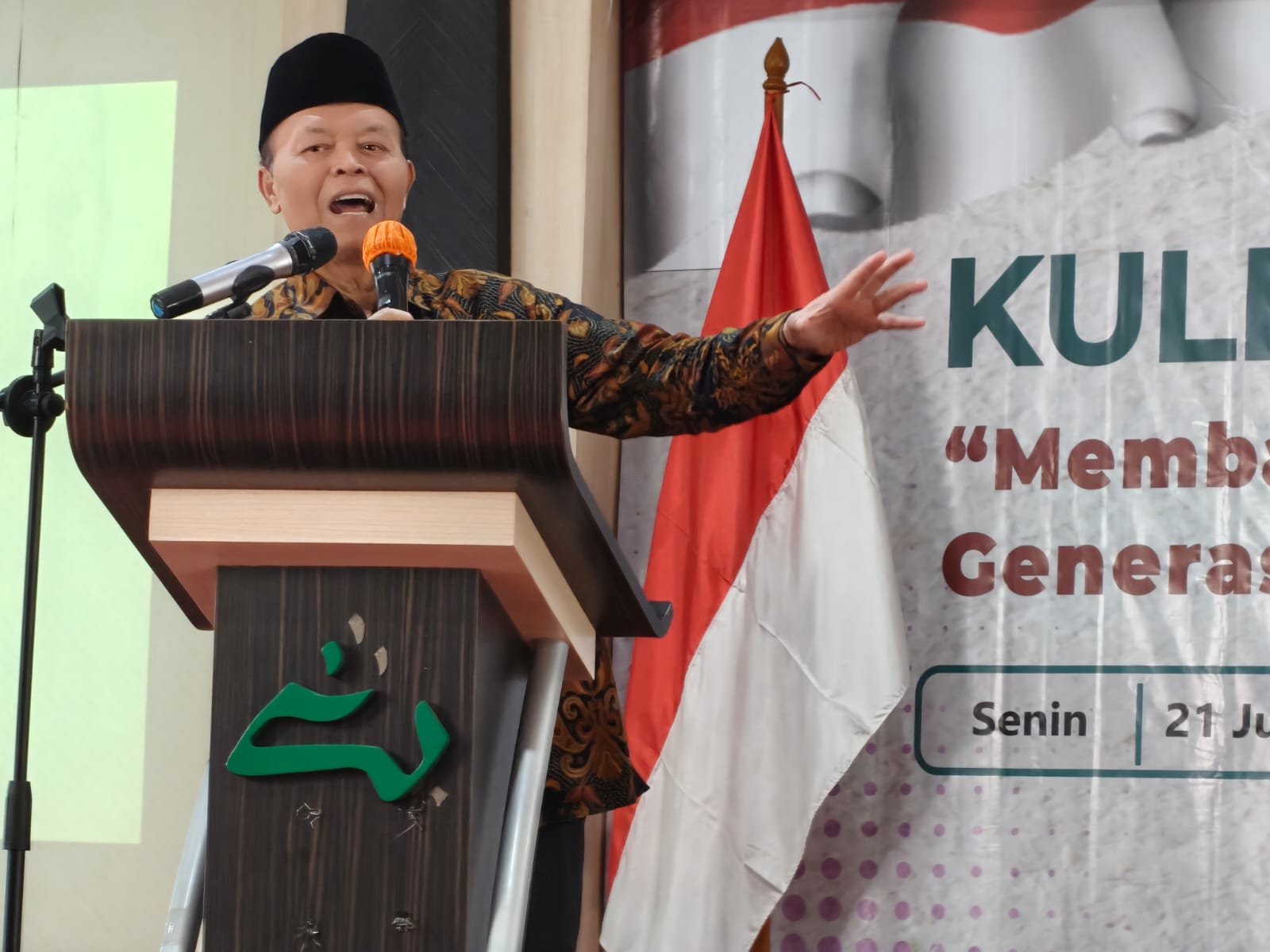Religion is the pillar of Indonesia’s Pancasila ideology, both in the spiritual dimension, as outlined in the first tenet of the ideology, and in non-spiritual dimensions.
Depok, Jawa Barat (Indonesia Window) –
The Deputy Speaker of the People's Consultative Assembly, Dr. Hidayat Nur Wahid, emphasized that religion is the pillar of Indonesia’ Pancasila ideology, both in the spiritual dimension, as outlined in the first tenet, and in non-spiritual dimensions.
Pancasila the foundation of the state and the philosophy of the nation and state of the Republic of Indonesia which consists of five principles – 1. Belief in the One Almighty God, 2. Just and civilized humanity, 3. Indonesian unity, 4. Democracy guided by the wisdom of deliberation among representatives, 5. Social justice for all Indonesian people.
Dr. Hidayat Nur Wahid made the remarks at a public lecture entitled ‘Building Ideological Resilience in
the Younger Generation for the Advancement of the Nation,’ which was held by the SEBI Islamic Economics Institute in collaboration with the People's Consultative Assembly in Indonesia’s Depok City, West Java province, on Monday.
According to Hidayat, from the beginning, the nation's founders built Indonesia on two ideological foundations: Islam and national democracy. The formulation of an Islamic-based ideological foundation was represented by the Muslim community through organizations such as Muhammadiyah, Nahdlatul Ulama, and religious scholars.
"Indonesia has a Muslim majority, so it's natural that Islam should be used as an ideology," he said, adding that this however met resistance because there are many adherents of other religions in Indonesia.
Therefore, a spirit of democratic nationalism emerged that accommodated the diversity of Indonesian society.
He outlined the dynamics of the formation of the state's foundation during the preparation for independence, with the formation of the Committee of Eight chaired by Bung Karno (Soekarno who was then became the first Indonesian president).
However, this group was deemed not to reflect fair representation because only two individuals represented Islam, while the other six were nationalist, making it unable to reach a balanced compromise.
Subsequently, this structure was changed to the Committee of Nine, with four Islamic representatives and four nationalist representatives from community organizations and political parties, as well as one Christian representative.
This composition was considered to reflect an inclusive and collaborative spirit in the formulation of the nation's ideology.
"Indonesia is a country of dream that comes true," Hidayat said, recalling the long history of Indonesia's struggle for independence in 1908 by an Indonesian association in the Netherlands, as well as other important milestones such as the 1928 Youth Pledge, and the role of bodies like the BPUPKI (an observing committee for preparatory work for Indonesian independence), the Committee of Nine, and the PPKI (preparatory committee for Indonesian independence).
He emphasized that history should not be forgotten, but should instead serve as an encouragement for the younger generation to contribute to building the nation.
Our young generation enjoys challenges and is open to the dynamics of change," he said, adding that a balance between spiritual and national values is an important pillar for development towards a Golden Indonesia 2045.
However, Hidayat also highlighted various challenges that must be addressed. One of these is Indonesia's high stunting rate, which is the highest in Southeast Asia. "One in five Indonesian children suffers from stunting. This is an emergency," he said.
He also mentioned other social issues that require attention, such as the rise of online lending practices targeting housewives, and online gambling addiction affecting adult males.
Hidayat called on all elements of the nation, including university students and the younger generation, to take an active role in welcoming Indonesia Emas 2045 (Golden Indonesia 2045) by strengthening religious and national ideologies and collectively addressing social challenges.
Reporting by Indonesia Window 



.jpg)
